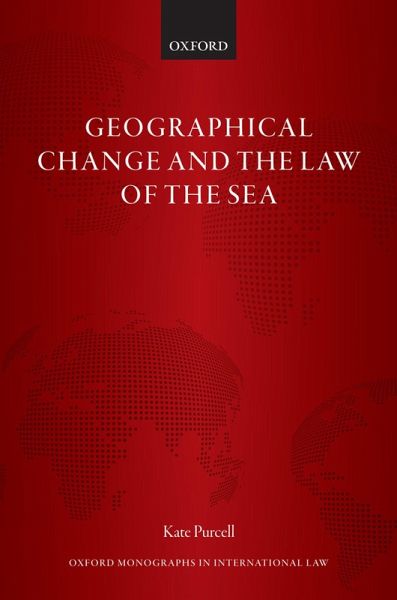
Geographical Change and the Law of the Sea (eBook, PDF)
Versandkostenfrei!
Sofort per Download lieferbar
49,95 €
inkl. MwSt.
Weitere Ausgaben:

PAYBACK Punkte
25 °P sammeln!
This book examines the implications of geographical change for maritime jurisdiction under the law of the sea. In a multistranded intervention, it challenges existing accounts of the consequences of climate-related change for entitlement to maritime space, maritime limits, and international maritime boundaries. It also casts new light on the question of whether a loss of habitable land and large-scale population displacement will precipitate a loss of territorial sovereignty and the legal 'extinction' of affected States. This study of the legal significance of geographical change is grounded i...
This book examines the implications of geographical change for maritime jurisdiction under the law of the sea. In a multistranded intervention, it challenges existing accounts of the consequences of climate-related change for entitlement to maritime space, maritime limits, and international maritime boundaries. It also casts new light on the question of whether a loss of habitable land and large-scale population displacement will precipitate a loss of territorial sovereignty and the legal 'extinction' of affected States. This study of the legal significance of geographical change is grounded in an in-depth study of the role of geography in the law of the sea. As well as offering a new perspective on the pressing question of how climate change will affect maritime jurisdiction, territorial sovereignty, and statehood, the book contributes to the scholarship on maritime delimitation and international boundaries generally (on land and at sea). It includes an analysis of the principle of intertemporal law that suggests a useful framework for considering questions of stability and change in international law more broadly. This rigorous and original study will be of value to anyone concerned with the implications of climate-related change for maritime jurisdiction, territorial sovereignty, and statehood. Its broader analysis of the existing law and engagement with a range of doctrinal debates through the lens of the question of geographical change will be of interest to scholars and practitioners of the law of the sea, the law of territory, and the law relating to international boundaries.
Dieser Download kann aus rechtlichen Gründen nur mit Rechnungsadresse in A, B, BG, CY, CZ, D, DK, EW, E, FIN, F, GR, HR, H, IRL, I, LT, L, LR, M, NL, PL, P, R, S, SLO, SK ausgeliefert werden.













